Welcome back to the show, my Abrahamic homies. In this fourth installment on the topic of inheritance, I hope to wrap up and give you some discreet examples of steps that I’m taking to move towards Biblical inheritance opportunities for my own multigenerational outpost. But before I do that, let’s quickly recap what we know about inheritance as described in the Bible (as described in part 1, part 2 and part 3 of this series).
- First, inheritance is always tied to identity.
- Second, inheritance consists of productive resources.
- Third, inheritance requires work and claiming on the part of the recipient.
In order to fully understand why I would make those claims, PLEASE start at part one of this series if you haven’t been there yet. I’ll wait right here for you.
Ok, glad you’re back. Sweet. And I hope that this doesn’t burst your bubble, but I’m not going to give you a whole bunch of tips on which hedge funds to invest in if you want to leave a legacy. Sorry. By now you’ve hopefully gathered that inheritance has a whole lot more to do with the culture of your household than it has to do with the balance in your bank accounts. With that in mind, let’s start on my Top Tips for Inheritance-Minded Family Leaders.
Note: this is a quick list – every item below could be its own article (and some are, click the links) – but this will hopefully get your juices flowing while giving you some good practical examples.
Bucket Numero Uno – Family Rhythms
#1 Establish Your Family Identity. You can’t pass on identity-laden resources if you never established an identity in the first place. So it all goes back to the household: what is your purpose, vision and mission as a family?
These are huge concepts, with repercussions all over the place. If you’ve never defined those, stop worrying about your money. You’ll do more damage than good if you manage to save up some and pass it down, unless you happen to dump it onto a younger generation that has actually done the work to establish those things for their own future generations. You should have those ingredients (purpose, vision and goals) thought through, debated over, prayed on, and written down before you proceed with these recommendations.
#2 Train Your Children. As a father with aspirations of leaving some inheritance behind, I’m VERY intentionally focused on building kids who know how to handle (lots of) money when it comes their way, and who also know how to make and increase money so that they have no fear of deploying it to all of the wonderful places it can go. That is to say, they can give it all away or invest it in a great opportunity, and not worry that they won’t eat–because they know how to make more money.
Some of the opportunities for training kids in money skills are obvious:
- Encourage the lemonade stand and then talk about what to do with the proceeds, for instance.
- Involve your kids in every aspect of household management you possibly can, even from a very young age–including the finances.
- Walk through the concept of budgeting with them in an appropriate way.
- Socialize the idea of saving for big purchases. For example, my 9 year old understands that in 7 years, if she wants to buy a car, she’ll be paying half (Yes, that really will happen. Yes, I really will be able to buy her a car with cash that will impress her friends and blah blah blah… but that’s not happening.) She hasn’t yet grasped the magnitude of that undertaking but it’s at least starting to form in her brain. Again, I’m not doing it because I need her help in the purchase – I’m doing it because I want her first opportunities for success and failure with money to happen while she’s under my care. There, she’ll be free to fail and encouraged when she success. And, like the Father does with me, I’ll entrust her with more when she proves faithful with the small first steps.
- I also use a concept that I stole from my good friend (and fabulous father) Adam Elrod, called The Bank of Dad. All of my kids have real bank accounts, but they also invest with The Bank of Dad, which offers a 10% APR savings rate of return. Try it. You’ll be surprised at the impact of receiving a whole dollar just for leaving ten bucks in the bank for a year on a younger child. It’ll at least produce the following:
- An interest in watching their money grow
- A desire to put more into investing than “cash” because… why not put that money to work?
- An inherent understanding of compound interest
- We recommend a kiddie course called Financial Peace Junior. I’ll restate for the record that we’re not huge Ramsey fans, but we like this course. It’ll teach your kids Giving, Saving, and Spending, and do it in a fun, age-appropriate way. I did it when my young uns were 5 and 7, and they took to it like fish to water.
- We also like this book, and there are many more in this vein. Why not educate them and make finance part of their worldview ASAP?
If you put zero effort into training your kids re: money, you are personally guaranteeing that your inheritance will go to an under-trained recipient. And it’s just as much on your head as theirs when they blow it (probably more). If a righteous man leaves an inheritance to his children’s children, then a financial education is part of that inheritance! Train your benefactors before they ever receive your loot!
#3 Forced Spending. Of course, when it comes to training our children to manage money, we don’t start out with large sums – we start with small sums. To this end, I’ve recently developed a practice of handing out a few bucks to each of my kids and mandating that they spend it. My girls, being eager to please their dad and observant of his frugality, often save and give 100% of the money that they earn. This warms my heart a bit, but I’d be in dereliction of duty if I never also taught them how to spend well. So, I send them out with money and let them feel the pain of wasting $5 on cheap junk, or the joy of selecting an ice cream with Mom on a hot summer day. I’m delighted when they win or if they fail – because they almost always learn something about wise spending in this process. I know a guy who walks into a Whole Foods, hands his kids $8 in cash, and says “dinner is what you buy.” That’s good training, there.
#4 Get used to inequity. This might blow your egalitarian minds, but I don’t think perfect equity of distribution is a very wise idea when it comes to inheritance. Depending on circumstances, I am already preparing my kids to see that we as a family will be investing in places that present the best opportunities for growth and flourishing of the family. Most families, when setting up a family trust, will drop a line in there about not distributing resources to a child that has a drug problem. For us, we just take this a step further and say we won’t be hamstrung by the belief that every child deserves an equal split of the family’s resources. If I end up with a child who is qualified and interested in carrying on the family business, my little CEO could very well end up with more than their siblings. For now, this is mostly didactic, and I admit that it’s tricky territory to teach this lesson while never allowing a smidge of suspicion that our love is flowing more to one child than another. But I don’t back away from the idea that we’re creating a multi-generational war chest, not a Standard of Living Bump for one fancy generation. That being the case, the lion’s share of this outpost armory will almost certainly go under the stewardship of the heir who shows the sharpest predilection toward that end.
#5 Talk about Spouse Finding Now. I’m relatively confident that I’m doing all that I can to bring up daughters who understand our family purpose and vision, and who can wisely manage the family’s resources and capitals. But I’m also aware that they are all very likely to get married someday, and that I haven’t had the opportunity to train their future husbands from childhood in these skills. So, we focus a lot of energy on the next best thing by talking often about what kind of men these girls will be looking for – and even though it’s not the top item on the list, wise financial manager IS on the list of characteristics they’ll be looking for. We seed that into conversations, purposefully.
I’ve been waiting for a chance to use this quote that our friend George Thornhill put in an email to me a couple of weeks ago, and since it’s loosely on topic now, he says, “Our daughters will be raised under our roofs and say to some man-boy who comes sniffing around – ‘nope, you sir are a MORON, back off. You have no idea how to sacrificially serve anyone but yourself’.” So that’s the reason why training your children in spouse finding is a key ingredient to prepare your future generations for Biblical inheritance. Again, to whom am I handing the keys to the Outpost? I don’t take that question lightly.
#6 Let Children see you choose the Family over Yourself. It’s all moot if the unique purpose and vision that your family has established doesn’t have any implications for you, Dad. Abraham was really rich and comfortable when he was handed a new purpose and vision from God. It changed everything for him and for every Israelite patriarch that followed him, so much so that any time God bumped into a new Jew on earth He usually identified Himself as “the God of Abraham, Isaac and Jacob”. Seems like these fathers effectively established a new family identity around following their God – and their children regularly saw them bleeding for that vision.
You may not be trekking across the wilderness with a future nation on your hands, but when your children see you choose the family over work, it tells a story about what you care about. This is really the only way you’re going to convince children that the vision you’ve outlined matters: when they see that it costs you something to move towards it. Whether it’s rapaciously protecting your family Sabbath, saying no to a promotion that would mean lots of travel or relocating the whole crew to a new city, let your children see you choose the family over yourself. It’s the number one way to preach against the modern disease in which we see ourselves as points rather than part of a line.
Bucket Numero Dos – Some Tactical Moves
I don’t like to leave you without any highly practical steps if I’ve convinced you to at least explore the idea of Biblical inheritance, so here are a few vehicles that, in my opinion, can be excellent pathways for inheritance-minded families.
#1 Building Companies. Family businesses are to multigenerational family builders what steroids are to bodybuilders – you can get a pretty good looking result without them, but the freakishly huge results just don’t come unless you inject a little of this into your system. (And unlike steroids, a good family business will rarely leave you with shriveled gonads. So that’s a plus.)
Hopefully we’ll get much more on this topic later – my purpose in this article isn’t to teach you how to start a family business. Instead, I’m just putting it in your brain that, even if you’re happily working away for a Fortune 500 company right now, starting, acquiring or laying the future foundation for a family business could be just the ticket to creating a household where inheritance is healthy. The reason goes back to our definition of Biblical inheritance – a family-run business always requires the inheritor to continue working in order to extract value, it bears the fingerprints of the previous managers (often parents and grandparents – identity-laden!), and it is productive if it has lasted long enough to be passed from one generation to the next. Businesses make great inheritances.
Now you may be objecting: “Mark. I, like my father before me, am an orthodontist. But my son doesn’t want to be an orthodontist! He just wants to dance!?” That is hilarious.
#2 Think about your real estate investing. Some of you won’t start a business, and that does not exclude you from the Biblical inheritance game, so don’t stress. The biggest asset that many of you will accumulate over your lifetime is often going to be real estate. While some folks will sell their homes and head to Florida in retirement to spend down all that accumulated equity (Biblically, this is known as “lame-o-rama”), YOU, my Abrahamic aspirant, are wondering if you could turn that house into some Biblical inheritance. I have good news.
If you think back to our two-parter with Mr. Justin Wolfenberg, he reminded us that there are only two assets mentioned in the bible that are multi-generational. Those would be children and land. Although most of us don’t have sprawling family farms to expand and cultivate these days, most of us do have some land (and if you’re not interested in children why would you be reading this?). Here’s a couple quick tips to make your real estate investment (potentially) a driver of Biblical inheritance:
- Look for assets that can be family gathering places for many generations to come. Is the 2-bedroom vacation condo really going to bless your family when there are grandkids attached your children? In our family, we don’t currently own any real estate outside of our primary home, but we’re on the hunt for property that could be developed in a stepwise fashion. We may be able to afford some acreage and a small home (containers are my current jam), but a requirement for us is that whatever we select can be expanded over generations. This way, when I hand the keys over to my children and their families, they will feel excited and responsible for expanding this family resource in new ways.
- Even your primary home can be more or less slanted towards multigenerational thinking. We love our current home, and it checks many of our boxes for this, but we can imagine a home that has even more possibility for multiple generations under one roof, great working from home options and neighborhood affordability so that we can surround ourselves with other family and friends who want to live within sight lines of each other. Today we have a home that is near to family and friends, but because we got in at a great time, our neighborhood has become a bit pricey for many folks who may want to live near us now. We also have plenty of room for an older generation to live with us, but no space where they could live separately but near. I suspect that we will make an effort to buy one of the five houses that borders ours so that we can make our setup more feasible for this type of living in the long run. And if we come across a whole block that is affordably for sale, we’re moving.
- Don’t overvalue the “dream home”. Place primary value on the ways in which a home can align to your family’s purpose and vision. We’ll do a whole post on this someday, but it will involve a lot of the ingredients above.
- Investment properties can provide lots of flexibility as inheritance vehicles. Rental properties provide streams of income (especially once they’ve been paid off) that can EITHER be a primary occupation for future generations or that can fuel other productive ventures. If there is a great, great grandson down the line who finds that he has a passion for technology, the cash flow from that 4-plex you bought just might fund his ability to develop a new tech startup that he will add to the family business bankroll.
#3 Invest in the right vehicles. If you’re feeling frustrated by this post right now, thinking, “Hey Mark – I’m not an entrepreneur and I live in California where your talk of acquiring multiple chunks of real estate makes you sound like an out of touch mook”, well then maybe this is the section for you. Almost everybody reading this already does (and should!) save and invest using more traditional vehicles like stocks and bonds. I am not anti-investments of this sort. I manage investment accounts, 401k plans and the like for a living, in fact–and I think they are great. Here are a few ways to think about inheritance when it comes to your investing behavior. Ready?
- The Grandchild 529 plan. If you’re interested in fulfilling on Proverbs 13:22 and leaving an inheritance for your children’s children, then I think there is hardly a better way for most people to start out than via the wise use of a 529 plan. The link over there, which is also provided right here for you, will take you to an extensive description of how this works, but the gist is that you can rather easily set up a 529 educational savings plan to take advantage of many years of compound interest and fund the educational needs of future generations for relatively small outlays of cash today. Did I mention that there is a link you can click to get a whole article about this? Ok good.
- Use Trusts Wisely. As a young man I thought trusts were just for lazy coke addicts whose parents would bear most of the responsibility for their near-certain youthful demise. But then I had kids and began to investigate what would happen if, say, my wife and I chose the wrong night to share a plate of discount Fugu. If we both died, our sizeable insurance policies would pay out and leave our kids with a boatload of cash on the day they turned 18. This is precisely the kind of scenario I’ve spent pages warning you against. But it may happen!
So we set up a couple of living trusts instead, and these allow us to speak for ourselves even when we’re gone – meaning we can partition money for specific purposes and even put restrictions on when and how money will be distributed. Trusts can be an excellent tool, especially when combined with a family vision and purpose statement, for structuring your money around your vision. While we’re not excited about an early demise, we don’t think it would be an automatic end to the vision for our family that the LORD has entrusted to us.
Lastly, trusts aren’t just for dead and disabled folks. Back at the start of this series I talked about the Billionaires who committed to giving all their money away before they die. Bless those guys but does it seem to you like they aren’t just giving – they’re also kinda consuming when they enjoy the accolades of a world fawning over their generosity? Maybe. Instead of going that route, our family uses a giving trust so that we can take some of our funds and allow them to be a resource for future generations to continue stewarding and giving the money that we’ve been entrusted with. We invest these funds wisely, just like we do our own retirement and investment accounts, but we give opportunistically. Because of our charitable trust, I have high hopes that one of the inheritances we’ll leave our kids is a fund which they’ll be entrusted with growing and wisely distributing. (So, uh, yeah… we need to keep the kid finance books on heavy rotation.)
Whoa- this series feels like a saga at this point. We’ve talked through the fact that inheritance isn’t godless selfishness dressed up as finance… it’s a key tool for a multi-generational outpost builder! And it deserves some thought, planning, and mindful execution.
Which is why I ended with a whole bunch of practical tips for getting going. If you picked any two of the 25 methods I suggested above (YES THERE ARE THAT MANY I COUNTED), and actually started applying them, you’d be well on your way to some good stuff–and way ahead of the curve, chacho.
So come on boys! Think hard about the long-term, and shake a tail feather! Get building on that inheritance and get planning on how it’ll get transferred to a smarter, more educated generation than yourself! Build a legacy that outlives you, so that a people not yet born may praise the LORD!
*Mark Parrett is one of the founders of Abraham’s Wallet. When not blogging for you here, he’s raising a family in Salt Lake City, UT and working as a financial planner at Outpost Advisors.






